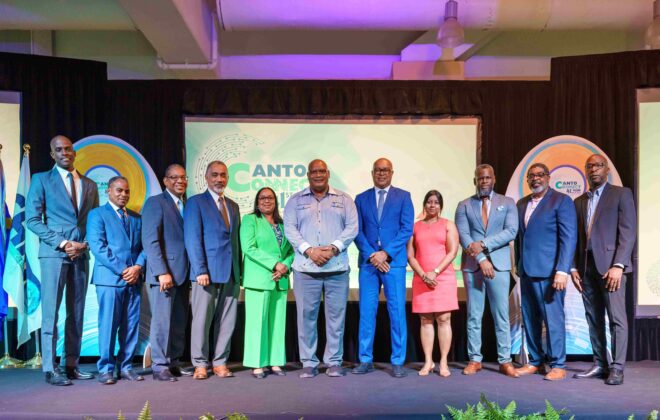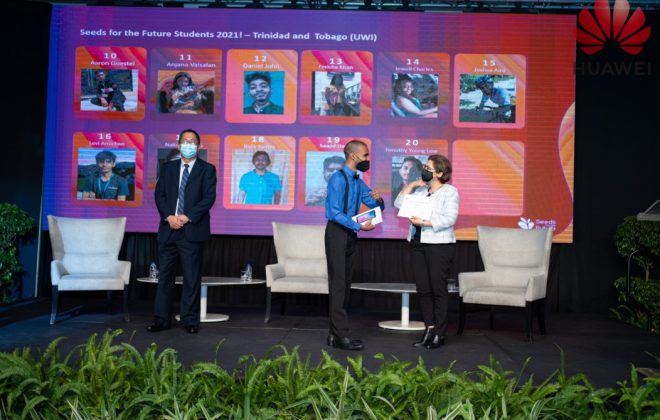CANTO Weekly Newsletter – BNamericas: 03/28/14
| Digicel to build underground fiber optic network in Jamaica – Jamaica Columbus International to issue US$1.25bn unsecured notes – Barbados CA pushes telcos to go beyond MDM with enterprise mobility platform – Regional Telefónica announces global content delivery partnership with Akamai – Regional Panama renews Telefónica’s 20-year concession license – Panama |
| The information presented and opinions expressed herein are those of the author and do not necessarily represent the views of CANTO and/or its members. |
| Digicel to build underground fiber optic network in Jamaica – JamaicaCaribbean telco Digicel is to build an underground fiber optic network in the Jamaican cities of Montego Bay, New Kingston and Kingston with a value of 600mn Jamaican dollars (US$5.5mn), according to local publication The Gleaner.The deployment – to take place in the Montego Bay free zone, New Kingston and in the port areas of Kingston – includes an MPLS enabled metro-Ethernet fiber optic network design and is expected to be finished by mid-2Q14.The project is being implemented in collaboration with technology partners Sierra and Cisco (Nasdaq: CSCO).
Digicel, an Irish-owned mobile operator based in Jamaica, plans to invest approximately US$500mn in 2014 to expand its networks throughout Central America and the Caribbean, according to the Financial Times. Columbus International to issue US$1.25bn unsecured notes – Barbados Barbados-based telecom provider Columbus International plans to issue senior unsecured notes for up to US$1.25bn which will be due in 2021, according to ratings agency Standard & Poor’s (S&P). Proceeds from the notes issuance are expected to cover the company’s current US$852mn debt, compensate shareholders for US$100mn, fund the Lazus acquisition and be distributed for general corporate purposes. S&P assigned a B issue-level rating to the notes while also affirming Columbus’ B corporate credit rating with a stable outlook. With the company decreasing its financial leverage, the stable outlook reflects S&P’s anticipation of 20% revenue growth in 2014 and above 10% in subsequent years. CA pushes telcos to go beyond MDM with enterprise mobility platform – Regional CA Technologies (Nasdaq: CA) is in talks with several Latin American telcos that have shown interest in evolving their mobile device management (MDM) capacity to a more comprehensive enterprise mobility management (EMM) platform, CA executive Rosano Moraes told BNamericas. At this year’s Mobile World Congress, CA launched its Management Cloud for Mobility platform, comprising an EMM suite, an application development and deployment suite called Mobile DevOps, and an M2M device manager called Enterprise IoT. The EMM suite itself breaks down into modules for application management (MAM), content management (MCM), email management (MEM) and MDM. While the mobility management cloud will be available from CA’s own datacenters around the world, the firm will also depend heavily on telcos and managed services providers in the region for further reach, particularly as the platform targets enterprises of all sizes, from SMEs to large corporations. “Telcos are one of the most important utilization channels for CA solutions as a service to enterprises in Latin America,” said Moraes, who is VP of CA’s infrastructure, management and automation unit in Latin America. Moraes cited a recent Latin American IT priorities study by research firm TechTarget, which found that 29% of IT managers in the region are thinking of implementing MDM solutions in 2014, and 24% plan to make corporate data more accessible to mobile devices. The relatively low figures support the idea that there is an opportunity for making these solutions easier to deploy, as occurs with cloud offerings. And the figures are increasing year to year, Moraes said, which indicates increasing interest in these solutions no matter how they are delivered. Telefónica announces global content delivery partnership with Akamai – Regional Spanish telco Telefónica (NYSE: TEF) has announced a global content delivery network (CDN) partnership with content distribution services provider Akamai (Nasdaq: AKAM), the former said in a release. The partnership will initially be focused on providing solutions for Telefónica’s corporate segment clients in the Spain and Latin America, but is expected to be expanded globally. Telefónica and Akamai will combine technical support, client attention, marketing and professional services in the provision of their joint CDN offering. The two companies are also jointly exploring future opportunities in areas including multimedia optimization and mobile technologies. The global explosion in mobile data consumption, driven predominantly by mobile video platforms, has made optimization of content delivery a key priority for telcos worldwide. Telefónica’s alliance with Akamai reflects the operator’s commitment to providing content delivery solutions in the face of an “unprecedented increase in connectivity of all types of devices and an important increase in video use, according to Juan Carlos López, president of Telefónica’s global solutions division. Mobile data traffic is set to grow strongly in Latin America in the coming years, increasing by 66% annually through 2018, according to a report by Cisco (Nasdaq: CSCO). Video consumption is playing an increasingly significant role in driving growth in mobile data traffic. Mobile video traffic accounted for more than 50% of total mobile data traffic for the first time in 2012, and will account for more than two-thirds of mobile data traffic globally by 2018, amounting to a 14-fold increase between 2013 and 2018, the report said. Panama renews Telefónica’s 20-year concession license – Panama Panama’s government has renewed the concession contract of Telefónica’s local unit Movistar from February 5, 2016 to February 4, 2036, according to the presidential website. Movistar’s concession license dates back to February 5, 1996, when the company – then called BSC de Panama and now Telefónica Móviles de Panama – was awarded a 20- year contract. Movistar competes in Panama with Cable & Wireless Panama, Digicel and Claro. |


